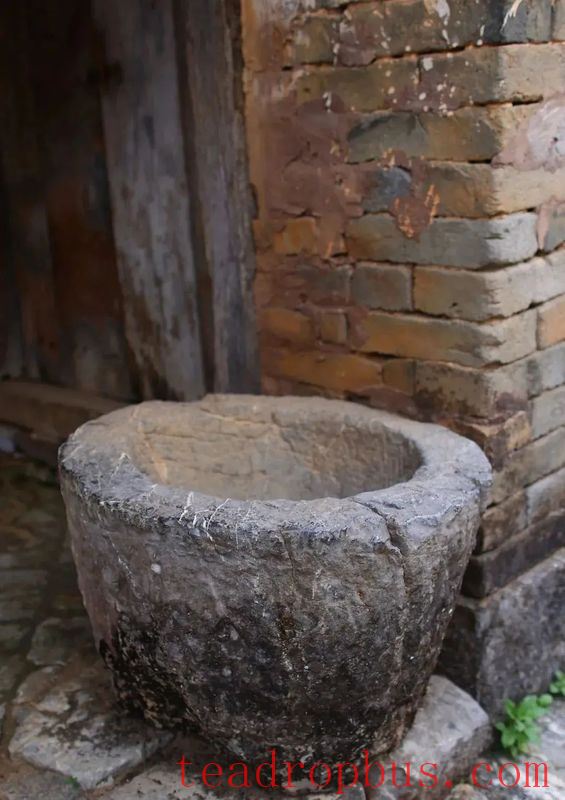Yiwu was bestowed the name “Profit City” during the Tang Dynasty. By the late Ming and early Qing dynasties, Pu'er Tea gained prominence on the tea mountains, drawing merchants from places like Stone Screen (Shi Ping), Dali, and Sichuan to develop the Pu'er tea industry. Yiwu became a crucial hub for Pu'er tea trade. At that time, land, tea gardens, and forest rights belonged to feudal lords, with farmers leasing land from local officials to grow tea, paying rent and taxes.
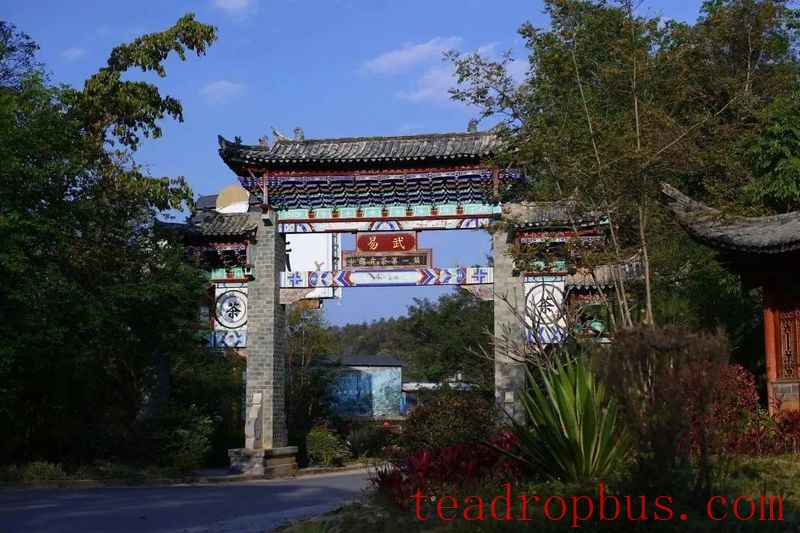
As the commodity economy, centered around tea, developed, by the mid-Qing dynasty, the land in Yiwu saw the emergence of leasehold and pawn transactions under the manipulation of local officials and noble descendants, leading to the gradual trading of private lands. This further spurred the growth of the tea industry on the mountains. Some officials, merchants, and gentry who profited from the tea business built their own houses in Yiwu.
Many of these houses were constructed with stone foundations, wooden frames, and tile roofs, typically two-story structures, similar in style to those found in Stone Screen, Ning'er, and Simao.
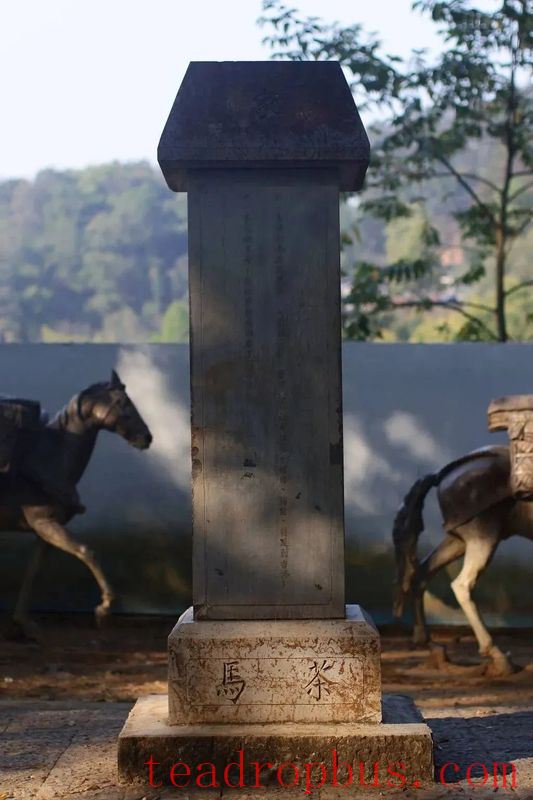
Wealthier households constructed corner quadrangle courtyards with return walls and their own shops and tea workshops. The streets were paved with bluestone, forming a layout where Guandi Temple's “Great Courtyard” served as a crossroads for “Yiping Street” running northeast, “Wuqing Street” southwest, and “Old Yiwu Street” westward. These streets once housed numerous tea houses, such as Tongxing, Yuantaifeng, Fuyuanchang, and Qingchun on Old Yiwu Street; Cheshun and Yingchang on Wuqing Street; and Tongqing and Yingchun on Yiping Street.
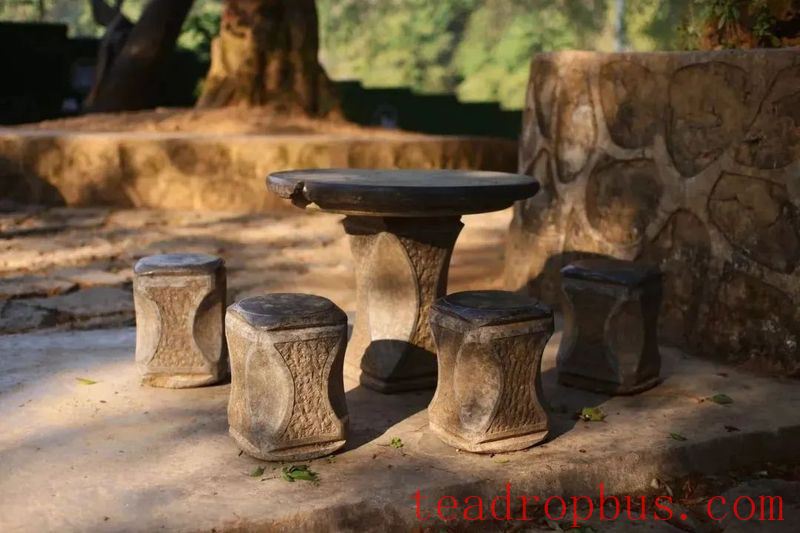
The ancient tea-horse road from Simao to Yiwu began construction in the 25th year of Daoguang (1845) and reached Yiwu in the 30th year of Daoguang (1850). At this time, the newly appointed local official, Wu Dingcheng, initiated the construction of bluestone-paved roads on Yiwu Street and Wuqing Street, and the Great Courtyard was also paved with bluestones to create a spacious market square.
In the early years of Xianfeng (1851), Wu Dingcheng continued to mobilize tea farmers and merchants to contribute financially and labor-wise to repair twelve other major and minor roads in Yiwu.
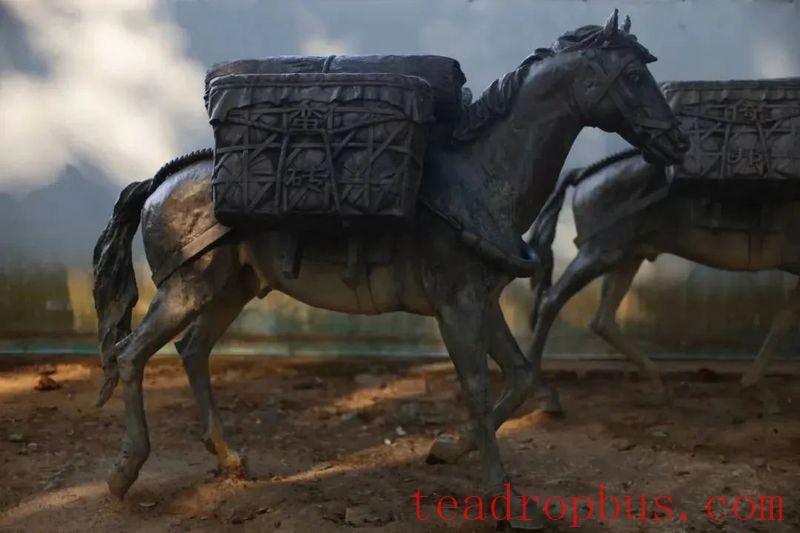
After the completion of the ancient tea-horse road through Yiwu, increased accessibility led to more frequent visits by Han merchants, and the tea trade flourished. Domestic and international caravans frequently traveled between Yiwu, Simao, and Ning'er, making Yiwu a bustling place. The Great Courtyard became a hub for tea trade. To accommodate the needs of tea merchants, stables and restaurants appeared in alleys throughout Yiwu. Merchants from Stone Screen often stayed at the Stone Screen Guild Hall, while others resided in privately operated stables. Sometimes, even these stables would be full, forcing some merchants to rest in the Rooster Yard west of the Great Courtyard.
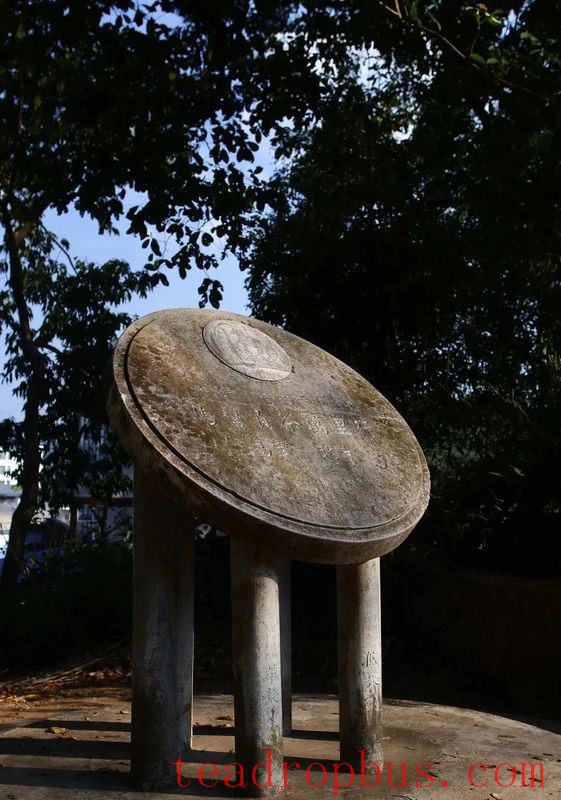
Due to its spaciousness and proximity to a large well at the foot of the slope, this area became a convenient spot for tethering horses, resting, loading goods onto horses, and entertainment. After concluding their tea transactions, merchants would often set off early in the morning. Without clocks, they relied on the crowing of roosters to determine the time. These roosters also provided entertainment through cockfighting during their leisure time. Hence, the area came to be known as the “Rooster Yard.” Later, with the advent of clocks, the reliance on roosters diminished. Over time, with the division of public and private property, some people now refer to this place as the “Public Yard.”
